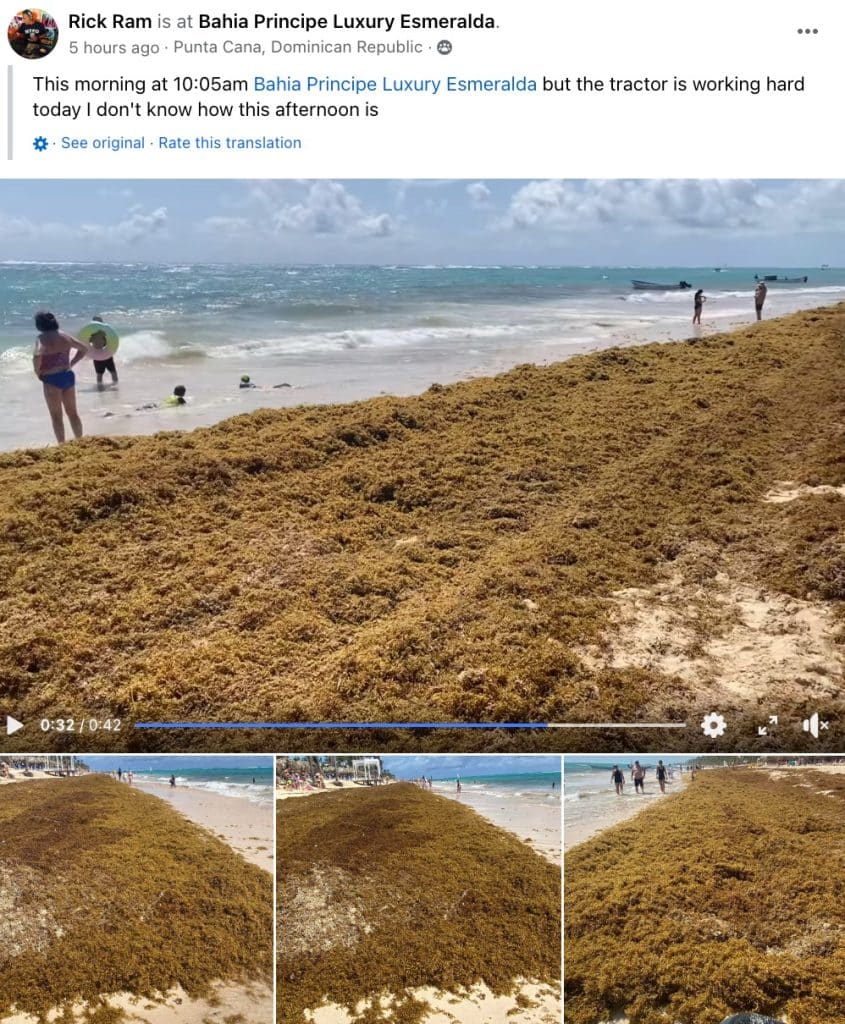These 6 Caribbean Travel Hotspots To See Record Seaweed Invasion In Summer 2024
2 min readThe Mexican Sargassum Monitoring Network (RDMS) has discovered 7,400 tons of sargassum (5,000 square kilometers) floating on their way to six Caribbean hotspots. Unfavorable dominant winds from east to west in the Atlantic Sea make experts forecast that hundreds of tons of that sargassum will start reaching multiple countries in two weeks. “The main geostrophic marine currents and dominant winds, which run from east to west, will drag this sargassum in the coming weeks towards the waters of the Mexican […]
The post These 6 Caribbean Travel Hotspots To See Record Seaweed Invasion In Summer 2024 appeared first on Traveling Lifestyle.
The Mexican Sargassum Monitoring Network (RDMS) has discovered 7,400 tons of sargassum (5,000 square kilometers) floating on their way to six Caribbean hotspots.
Unfavorable dominant winds from east to west in the Atlantic Sea make experts forecast that hundreds of tons of that sargassum will start reaching multiple countries in two weeks.
“The main geostrophic marine currents and dominant winds, which run from east to west, will drag this sargassum in the coming weeks towards the waters of the Mexican Caribbean,” reads the RDMS statement.
The invasion, as the RDMS calls it, is expected to affect Caribbean beaches from June through August. In other words, summer plans might be affected in many areas of these places.
The most affected destinations include:
- The Mexican Caribbean coast
- Turks and Caicos
- Miami, Florida (USA)
- Dominican Republic
- Jamaica
- The Lesser Antillean Arch Islands

Source: FB Group – Algues sargasses Punta Cana Sargassum seaweed
According to the ORG Ocean Conservancy, the more sargassum there is, the more sargassum there will be, which in practical terms means that seeing tropical beaches buried under tons of sargassum over the summer has the potential to become the “new normal.”
To tackle this issue, countries like Mexico have elevated their sargassum alert level from green to yellow (Level 3) in Quintana Roo.
More than 300,000 tons of sargassum are expected to land on Mexican beaches this year, shattering the records set in previous seasons.
Holidaymakers have been advised to refrain from swimming when there’s too much sargassum in the water.
Other countries like the Dominican Republic are installing ocean barriers to collect seaweed in the open sea. However, the same barriers installed in Mexico have demonstrated inefficacy when winds are strong.
[embedded content]
Is sargassum Still Safe for Humans and Ecosystems?
Yes and no. When it’s not too abundant, people can safely stroll for miles on the beach without any issues.
But when we have a massive arrival, it quickly decomposes, releasing a nauseating smell and causing rashes if you overexpose your skin to it.
In the animal kingdom, Dolphins, sea turtles and other ocean creatures are getting trapped in massive seaweed blobs, dying in the process because they are “unable to surface for air.”
This seaweed is also changing the water chemistry, creating a polluted environment where marine species can no longer survive.



